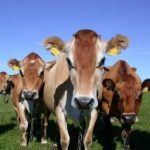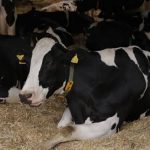Nigeria’s livestock industry is on the brink of a significant transformation aimed at enhancing food security, thanks to the establishment of the African Pastoral Markets Development (APMD) platform. This initiative is a collaborative effort between the federal government and the African Union – Inter African Bureau for Animal Resources (AU-IBAR) to promote market-led transformations in pastoralism, which is essential for millions across Africa.
At the recent workshop in Abuja to launch the APMD platform, Aliyu Abdullahi, Minister of State for Agriculture, highlighted Nigeria’s vast potential for livestock development. He noted the country boasts approximately 21.2 million cattle, 76.3 million goats, and 48.6 million sheep, which significantly contribute to the supply of animal protein, foreign exchange, and raw materials for agro-allied industries. Abdullahi emphasized, “Nigeria is a major hub of animal product consumption in West Africa and is the most important market for livestock in the sub-region.”
He pointed out that addressing the growing domestic demand and accessing thriving markets are crucial economic factors for Nigeria and its Sahel neighbors. However, he acknowledged that inadequate market information often hampers smallholder farmers, who constitute the majority of the farming populace, from capitalizing on the high prices of animal agricultural products. As a result, much of the profit margin ends up with middlemen.
To enhance their market position, Abdullahi encouraged pastoralists to form cooperative societies to pool resources. “This will go a long way in ensuring that they procure inputs like feed, vaccines, and drugs from genuine sources, hence obtaining better quality at reduced costs,” he stated. He also suggested that cooperatives could help farmers access loans from credit institutions, enhancing their financial capacity and market competitiveness.
Huyam Salih, Director of AU-IBAR, represented by APMD’s Project Coordinator Ahmed Eibeltagy, reiterated the platform’s aim to strengthen the livestock sector and protect rural incomes derived from meat and livestock products. Salih described the initiative as a beacon of hope, emphasizing that “the launch of the APMD Platform occurs at a pivotal moment, allowing us to address existing challenges.”
The workshop focused on developing strategies that empower pastoral communities through collaboration and innovation. Salih outlined three guiding pillars for their initiatives: creating an enabling policy environment, establishing a functional data ecosystem, and ensuring private-sector integration. She expressed gratitude to the Bill and Melinda Gates Foundation for its financial support, noting their commitment to fostering sustainable economic growth for pastoral communities in the region.
As Nigeria and Kenya are designated as “Lighthouse Countries” for the APMD initiative, they will spearhead the translation of strategies into actionable outcomes. Six additional Strategic Outreach Countries (SOCs) will benefit from the lessons learned during this initial phase, aimed at scaling success across the region.
The overarching goal of the APMD platform is to foster collaboration among pastoral livestock stakeholders, enabling pastoralists to access more profitable markets while ensuring food security across Africa. By addressing the unique challenges faced by pastoralists and promoting sustainable growth, the APMD platform aspires to significantly impact the livelihoods of millions across the continent.










